|
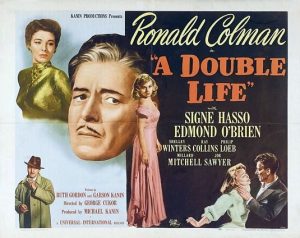
Synopsis:
An actor (Ronald Colman) with a history of becoming dangerously over-invested in his roles decides to perform as Othello opposite his ex-wife (Signe Hasso), who still loves him but fears his moodiness. While rehearsing, Colman has an affair with a sexy waitress (Shelley Winters) and becomes increasingly unhinged, leading Hasso and Colman’s manager (Edmond O’Brien) to wonder if his neurotic engagement with the play will lead to dire consequences.
|
|
Genres, Themes, Actors, and Directors:
- Actors and Actresses
- Amateur Sleuths
- Betsy Blair Films
- Edmond O’Brien Films
- George Cukor Films
- Mental Breakdown
- Mistaken or Hidden Identities
- Ronald Colman Films
- Shakespeare
- Shelley Winters Films
- Signe Hasso Films
Review:
While the premise of this theater-centric flick (scripted by Ruth Gordon and Garson Kanin) appears a bit overly “tidy” at first — it’s difficult to feel much sympathy for a beloved actor raking in money and applause, who (poor thing) must make challenging decisions about which roles to take on next — the storyline quickly turns satisfyingly dark, as we understand that Colman’s neuroses are deep-seated, and his situation represents the ongoing metaphorical challenge of balancing a “double life” in any context. Colman won an Oscar for his performance as Tony/Othello — but in his Alternate Oscars, Peary gives the award instead to Charlie Chaplin in Monsieur Verdoux (1947), noting that while for years he was “impressed by Colman in almost all his films, dating back to the silent era”, he eventually came to the “sad realization that this handsome and dignified screen presence wasn’t a particularly good actor”. He further argues that “in A Double Life, he’s not convincing as the actor or as the crazed killer the actor becomes”, and that he “looks impressive but is dull in the stage scenes”.
I disagree with Peary, and find it challenging to understand how Colman’s “award-guaranteeing scenes as Othello, which critics of the day loved as much as did the audiences in the movie, reveal his limitations as an actor”. While I’m not a fan of snooty theater actors or blindingly possessive husbands, Colman’s conviction and pathos in both roles is compelling. Actors are temperamental creatures (to say the least!), and Colman takes that archetype to the hilt here. Winters, meanwhile, does a stand-out job in her break-through role as Colman’s mistress, and Hasso is poignant as well. Milton Krasner’s cinematography makes the entire shadowy affair a noir-ish treat to watch. Watch for Betsy Blair in an unexpectedly humorous (though poignant) scene as a would-be actress desperate to convince O’Brien she’s right for a real-life part in his investigative sleuthing.
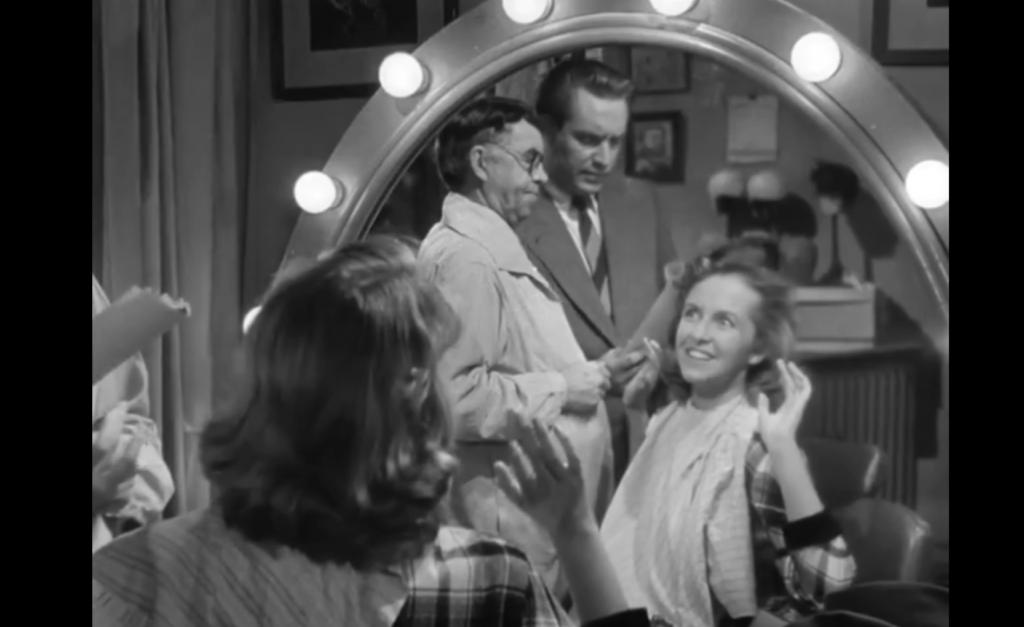
Redeeming Qualities and Moments:
- Ronald Colman as Tony/Othello
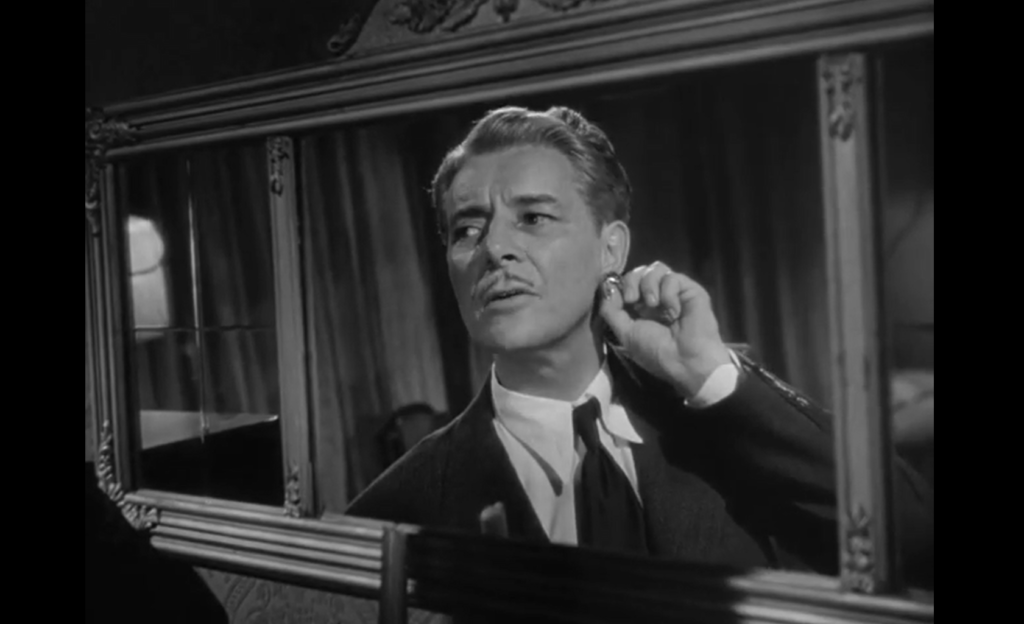
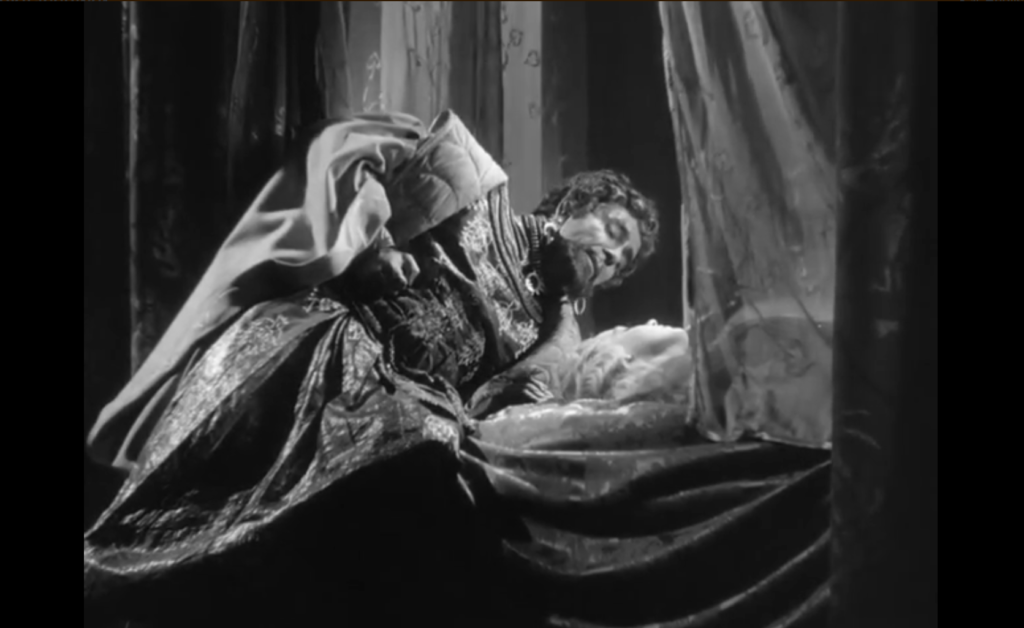
- Signe Hasso as Brita/Desdemona
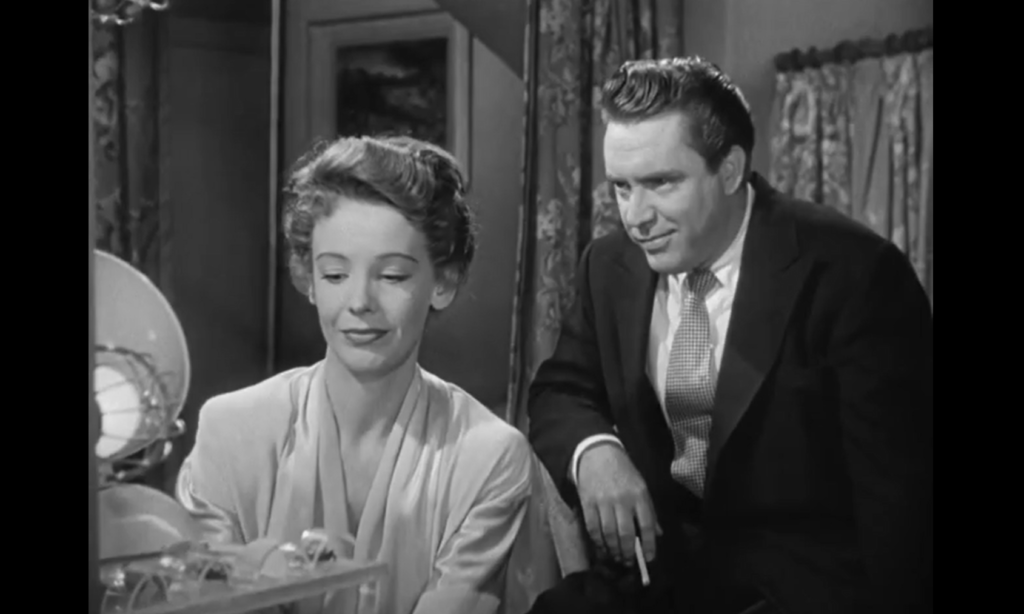
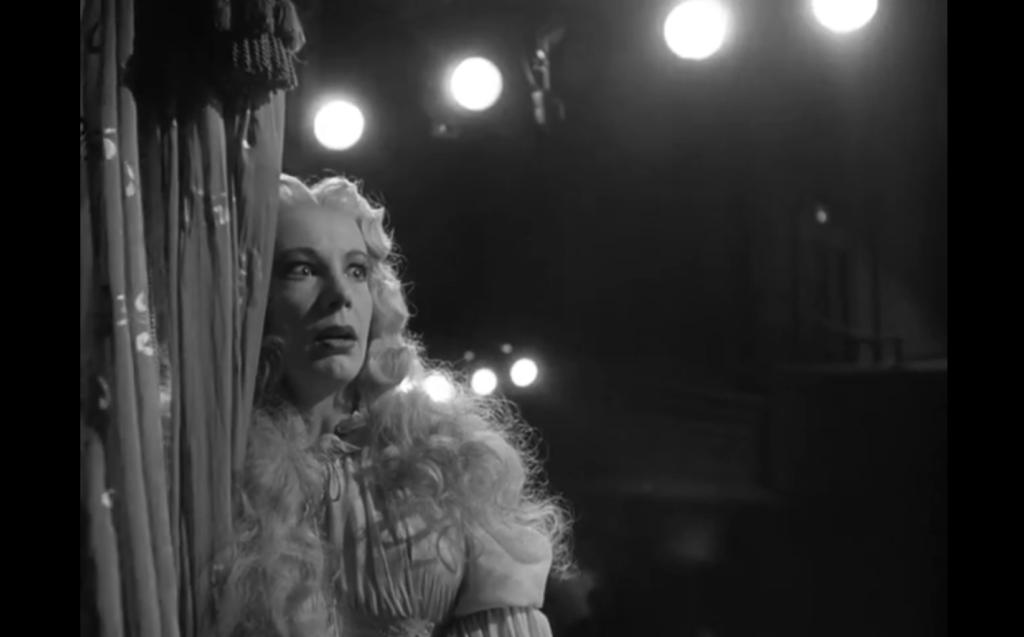
- Shelley Winters as Pat
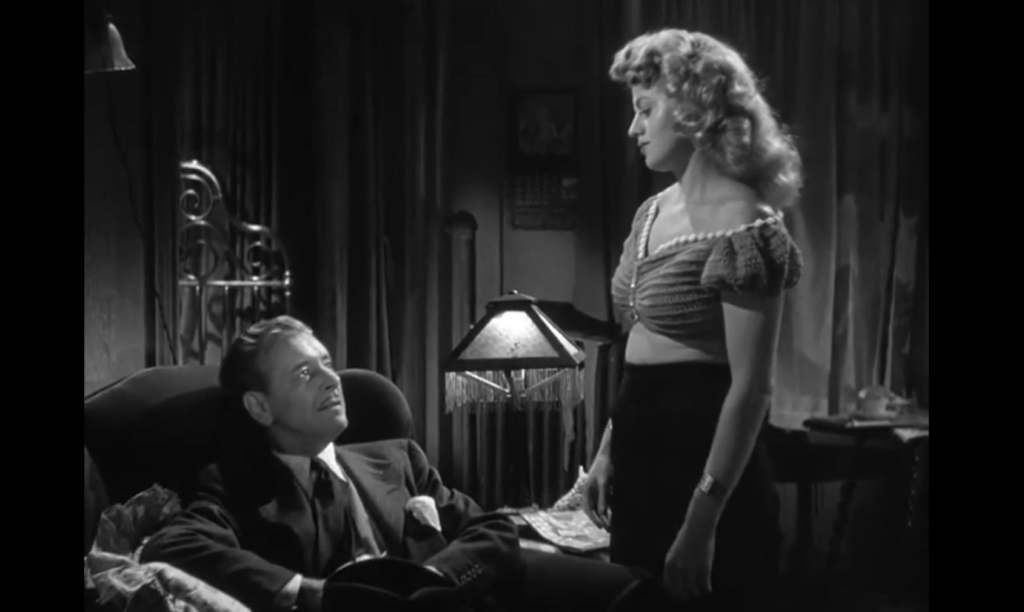
- Milton Krasner’s cinematography
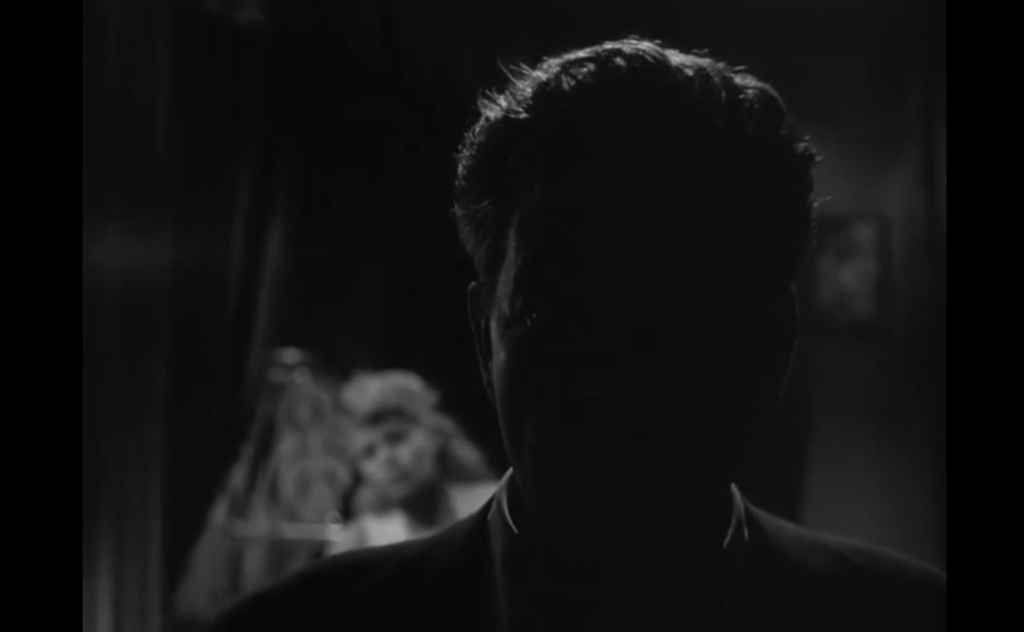
Must See?
Yes, to see Colman’s Oscar-winning performance. Listed as a Personal Recommendation in the back of Peary’s book.
Categories
Links:
|








One thought on “Double Life, A (1947)”
Not must-see.
I’ve now seen this film 3 times – and I don’t like it. Of course, whether or not I like it has nothing to do with whether or not the film works – but ultimately I don’t think it does.
Between them, writers Gordon and Kanin probably had tons of stories to tell which would have been inspired by their theater life. Why they decided to devise a murder story, though, is a head-scratcher (except that murder stories are rather sure commercial properties).
One might think that the real motivation behind the script is to focus on the kind of actor who is so ‘devoted’ to craft that he (or she) ‘becomes’ whatever role is being played. The writers would have had opportunities to observe that kind of actor first-hand. Even in my limited experience with New York theater, I also came across that type – and it’s a type I find needlessly excessive (overall). It’s all well and good to want to be authentic in performance but, after all, acting is just a job – it shouldn’t have to be an obsession; such behavior gets into the territory of being pretentious.
~which this film, alas, also falls prey to. The scenes from ‘Othello’ lean toward being hammy. It’s also a bit unintentionally funny to think that New York audiences would flock to a production of ‘Othello’ for over a year – no matter *how* good it might be.
The fact that Colman’s character is actually a bit insane is a little hard to swallow. That he is perfectly fine (if still stereotypically two-faced, as many actors are) when doing comedies but turns into another person *only* when doing a serious play begs for suspension of disbelief.
All told…I think the film is a misfire (and I suppose I agree with Peary that Colman has never particularly impressed me much as an actor).